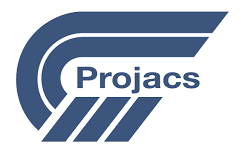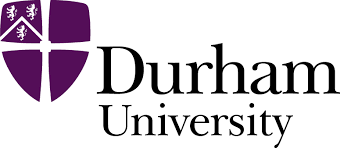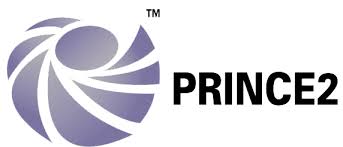
Change Management for HR Professionals
Course ID: 2512290101055ESH
Course Dates : 29/12/25 Course Duration : 5 Studying Day/s Course Location: London, UK
Language: Bilingual
Course Category: Professional and CPD Training Programs
Course Subcategories: Leadership and Management Excellence
Course Certified By: ESHub CPD & LondonUni - Executive Management Training
* Professional Training and CPD Programs
Leading to:
Executive Diploma Certificate
Leading to:
Executive Mini Masters Certificate
Leading to
Executive Masters Certificate
Certification Will Be Issued From :
From London, United Kingdom
Course Information
Introduction
In an era where organizational agility is paramount, the ability to manage change effectively has become a cornerstone of success for businesses across industries. Human Resources (HR) professionals are uniquely positioned to lead and facilitate change initiatives, as they serve as the bridge between leadership strategies and employee engagement. However, the complexity of modern workplace dynamics—ranging from technological disruptions to shifting workforce expectations—presents significant challenges in implementing sustainable change. This course on "Change Management for HR Professionals" addresses these challenges by equipping participants with the tools, frameworks, and competencies necessary to navigate transformational processes successfully.
One of the most prominent gaps in current HR practices is the inconsistent application of structured change management methodologies. While many organizations recognize the need for change, they often lack the systematic approach required to ensure alignment, communication, and long-term adoption. For instance, a well-documented case study of a global retail chain revealed that poorly executed change initiatives led to a 30% decline in employee morale and productivity. By incorporating established theories such as Kotter’s 8-Step Change Model and Lewin’s Change Management Model, this course bridges the gap between theoretical understanding and practical application, enabling HR professionals to design and implement change strategies with precision.
The benefits of mastering change management extend beyond individual career advancement; they have profound implications for organizational success. Companies that excel at change management report 75% higher success rates in achieving desired outcomes compared to those that do not prioritize it, according to Prosci’s Best Practices in Change Management report. For HR professionals, this translates into enhanced credibility, improved stakeholder relationships, and the ability to drive initiatives that align with strategic goals. Furthermore, organizations benefit from reduced resistance to change, increased employee buy-in, and more efficient resource allocation during transitions.
A notable example of effective change management can be seen in a multinational technology firm that underwent a digital transformation. By leveraging ADKAR (Awareness, Desire, Knowledge, Ability, Reinforcement), their HR team successfully guided employees through the adoption of new systems, resulting in a 40% increase in operational efficiency within six months. Such real-world applications underscore the importance of equipping HR professionals with robust change management skills. The course delves into similar case studies to provide actionable insights and foster critical thinking.
Emerging trends in the HR landscape further emphasize the urgency of developing expertise in change management. Remote work models, diversity and inclusion initiatives, and artificial intelligence integration are reshaping traditional workplace paradigms. These shifts demand a proactive approach to managing resistance, fostering adaptability, and ensuring compliance with evolving regulations. By addressing these trends, the course ensures participants remain at the forefront of industry developments while contributing meaningfully to their organizations’ growth trajectories.
Ultimately, this course is designed to empower HR professionals to become agents of positive change. Through a combination of theoretical foundations, hands-on exercises, and collaborative learning opportunities, participants will emerge equipped to tackle the complexities of modern workplaces. Whether navigating mergers and acquisitions, implementing new policies, or leading cultural transformations, graduates of this program will possess the confidence and competence to drive impactful change.
Objectives
By attending this course, participants will be able to:
Analyze the psychological and organizational factors influencing resistance to change.
Evaluate the effectiveness of various change management models using real-world scenarios.
Design comprehensive communication plans tailored to diverse stakeholder groups.
Implement strategies to measure and sustain change adoption over time.
Apply ethical considerations and compliance requirements in change initiatives.
Develop contingency plans to address unforeseen challenges during transitions.
Synthesize feedback from post-change evaluations to refine future strategies.
Who Should Attend?
This course is ideal for:
HR managers and directors seeking to enhance their leadership capabilities in driving organizational change.
Team leaders and supervisors responsible for implementing changes at the departmental level.
Organizational development consultants tasked with advising clients on transformation projects.
Learning and development specialists focused on upskilling employees during periods of transition.
These groups will find the course valuable due to its emphasis on practical tools and frameworks that directly address their day-to-day responsibilities. Additionally, the content is suitable for intermediate learners who already possess foundational knowledge of HR principles but wish to deepen their expertise in change management.
Training Method
• Pre-assessment
• Live group instruction
• Use of real-world examples, case studies and exercises
• Interactive participation and discussion
• Power point presentation, LCD and flip chart
• Group activities and tests
• Each participant receives a 7” Tablet containing a copy of the presentation, slides and handouts
• Post-assessment
Program Support
This program is supported by:
* Interactive discussions
* Role-play
* Case studies and highlight the techniques available to the participants.
Daily Agenda
Daily Schedule (Monday to Friday)
- 09:00 AM – 10:30 AM Technical Session 1
- 10:30 AM – 12:00 PM Technical Session 2
- 12:00 PM – 01:00 PM Technical Session 3
- 01:00 PM – 02:00 PM Lunch Break (If Applicable)
- Participants are expected to engage in guided self-study, reading, or personal reflection on the day’s content. This contributes toward the CPD accreditation and deepens conceptual understanding.
- 02:00 PM – 04:00 PM Self-Study & Reflection
Please Note:
- All training sessions are conducted from Monday to Friday, following the standard working week observed in the United Kingdom and European Union. Saturday and Sunday are official weekends and are not counted as part of the course duration.
- Coffee and refreshments are available on a floating basis throughout the morning. Participants may help themselves at their convenience to ensure an uninterrupted learning experience Provided if applicable and subject to course delivery arrangements.
- Lunch Provided if applicable and subject to course delivery arrangements.
Course Outlines
Foundations of Change Management
Understanding the role of HR in organizational change.
Overview of key change management models (e.g., Kotter, Lewin).
Identifying drivers and barriers to change.
Assessing organizational readiness for change.
Day 2:
Psychological Aspects of Change
Exploring human behavior during transitions.
Techniques for overcoming resistance to change.
Building trust and psychological safety.
Addressing emotional responses to uncertainty.
Day 3:
Communication and Stakeholder Engagement
Crafting compelling messages for different audiences.
Developing multi-channel communication strategies.
Engaging stakeholders through influence and collaboration.
Managing conflicts arising from miscommunication.
Day 4:
Implementation and Monitoring
Creating action plans for executing change initiatives.
Measuring progress using KPIs and metrics.
Adjusting strategies based on feedback loops.
Ensuring compliance with legal and ethical standards.
Day 5:
Sustaining Change and Continuous Improvement
Reinforcing new behaviors and practices.
Celebrating milestones and recognizing contributions.
Conducting post-change evaluations.
Preparing for future transformations.



















































